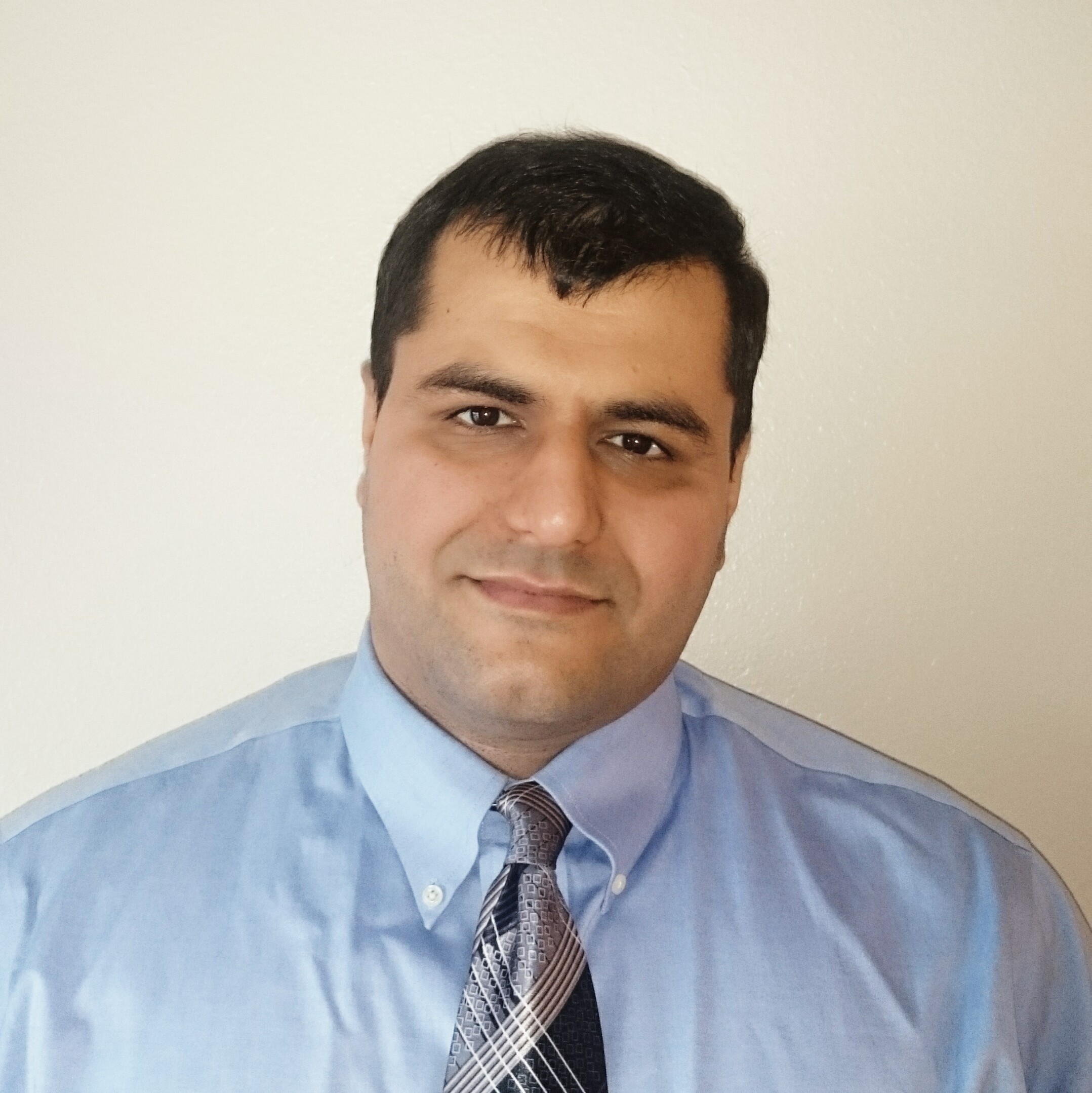
My Expertise
Evolutionary Algorithms
Multimodal and multi-objective optimisation
Multidisciplinary design optimisation
Keywords
Fields of Research (FoR)
Evolutionary computationSEO tags
Biography
Dr. Ali Ahrari is a Lecturer at the School of Systems and Computing, University of New South Wales, Canberra, Australia. He received his Ph.D. in mechanical engineering from Michigan State University (MSU) in 2016 and subsequently worked as a professional aide at MSU until June 2018. He has won some international competitions on optimization such as "Competition on niching methods for multimodal optimization" in 2016 and 2020, which was held...view more
Dr. Ali Ahrari is a Lecturer at the School of Systems and Computing, University of New South Wales, Canberra, Australia. He received his Ph.D. in mechanical engineering from Michigan State University (MSU) in 2016 and subsequently worked as a professional aide at MSU until June 2018. He has won some international competitions on optimization such as "Competition on niching methods for multimodal optimization" in 2016 and 2020, which was held at CEC and GECCO conferences, as well as an international student competition on structural optimization (ISCSO) in 2017 and 2018. From July 2018 to May 2022, he worked at UNSW-Canberra as a research associate/fellow in the Canberra Evolutionary Optimization group. After 15 months working as a research fellow at the University of Sydney, he returned to UNSW-Canberra in August 2023, working as a lecturer at the School of Systems and Computing.
Dr Ahrari is the recipient of the Australian Research Council Discovery Early Career Researcher Award (ARC-DECRA'2023) for the project "An Efficient Computational Solver for Complex Engineering Problems." His current research focuses on evolutionary algorithms to solve multimodal and multiobjective problems. Dr Ahrari has 28 peer-reviewed publications (25 papers as the first author) in scientific journals including 4 papers in lEEE Transactions on Evolutionary Computation. He is a member of the editorial board of “Applied Soft Computing.”
My Grants
2023-2016: ARC Discovery Early Career Research Award (DECRA) (Lead Investigator, 329,278 AUD)
2023: NCI adapter scheme (Lead Investigator, 2,200 AUD)
2022: NCI adapter scheme (Chief Investigator, $5,600)
2019-2021: UNSW high-performance computing (HPC) resource allocation scheme (Lead Investigator, $3,718)
My Qualifications
Doctor of Philosophy in Mechanical Engineering (December 2016), Michigan State University, East Lansing, MI, USA (GPA: 4.00/4)
Master of Science in Mechanical Engineering-Applied Design (September 2009), University of Tehran, Tehran, Iran
Bachelor of Science in Mechanical Engineering-Solid Mechanics (September 2006), University of Tehran, Tehran, Iran
My Awards
2022 Winner of the competition on seeking multiple optima in dynamic environments at IEEE CEC’2022
2022 Winner of the competition on dynamic optimization problems generated by generalized moving peaks benchmark at IEEE CEC’2022
2021 Associate Fellow of the Higher Education Academy (AFHEA)
2020 Winner of competition on niching methods for multimodal optimisation at IEEE WCCI/CEC'2020 (500 USD cash prize from IEEE) and GECCO'2020
2018 Winner of 2018 ISCSO competition on structural optimisation (1000 € prize)
2017 Winner of GECCO'2017 competition on multi-modal optimisation
2017 Winner of the 2017 ISCSO competition on structural optimisation among 60+ participants (1000 € prize)
2016 Winner of GECCO'2016, CEC'2016 competitions on multimodal optimisation
2013-2016 Graduate Office Fellowship (This fellowship was awarded multiple times)
2012 Richard H. Brown – ME Endowment Award
My Research Activities
My research focuses on the foundations and applications of computational optimisation, evolutionary computation, and swarm intelligence. I am particularly interested in multi-objective and multi-modal optimisation.
I can supervise enthusiastic HDR students (PhD or Master’s by research) whose research plans overlap with my expertise and background. The University often offers scholarships for highly competitive applicants. Interested applicants are encouraged to contact me with the following information:
- CV + publication list
- Transcripts
- English test score. You can find about the scores here: https://www.unsw.edu.au/english-requirements-policy
- Your research proposal (1-2 pages). Depending on your research interest, it is suggested that you visit EvOpt group website (https://sites.google.com/view/evopt/home) or MDO lab (http://www.mdolab.net/).
My Research Supervision
Supervision keywords
Areas of supervision
Evolutionary computation
Swarm intelligence
Computational optimisation
Multidisciplinary design optimisation
Currently supervising
1 PhD student at SEIT, UNSW-Canberra
My Engagement
- Chair of IEEE CIS Task force on Multi-modal Optimization
- Member of the editorial board of Applied Soft Computing (Q1)
- Lead Organiser of the competition on “Benchmarking niching methods for multimodal optimization” at GECCO’2024
- Lead Organiser of the “Competition on dynamic multimodal optimization” at IEEE CEC’2022
- Chair of two special sessions at IEEE CEC’2022 Conference
- Invited member of the IEEE CIS Task Force on multi-modal optimisation (2019-2024)
- Member of the scientific committee of ISCSO student competitions on structural optimisation (2019-now)
My Teaching
Introduction to Programming (tutor and lab demonstrator) (2018, 2019, 2021)
Computational Problem Solving (lab demonstrator) (2024)